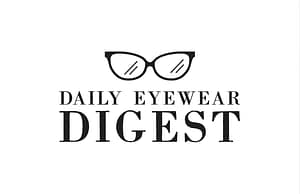H1: Introduction to Night Vision
Night vision refers to the eye’s ability to see in low-light conditions, a crucial function for activities like driving at night, navigating dimly lit areas, or working in environments with limited visibility. Many people struggle with diminished night vision, making everyday tasks more challenging and potentially dangerous. By understanding how night vision works and implementing certain strategies, you can improve your ability to see clearly in low-light situations.
This guide will explore the causes of poor night vision and provide practical tips to enhance it naturally and through medical interventions.
H2: Understanding How Night Vision Works
Night vision relies heavily on specialized cells in the retina called rods and cones. While cones are responsible for color vision and work best in bright light, rods are more sensitive to low light and are critical for night vision. In dark conditions, the eye uses these rod cells to help detect movement and shapes, although they provide limited detail and no color perception.
When you enter a dark environment, your eyes undergo a process called dark adaptation, where the pupils dilate to allow more light in, and the rods activate to enhance vision. However, factors like age, poor nutrition, or eye conditions can hinder this process, making it difficult to see clearly in dim light.
H2: Causes of Poor Night Vision
There are several reasons why your night vision might deteriorate:
- Aging: As you age, your eyes’ ability to adapt to darkness diminishes. Pupil size decreases, and the lens of the eye can become cloudy, reducing light transmission to the retina.
- Vitamin Deficiencies: Deficiencies in certain nutrients, particularly vitamin A, are linked to poor night vision. Vitamin A is essential for the production of rhodopsin, a pigment found in the rods that helps you see in low light.
- Eye Conditions: Medical conditions such as cataracts, glaucoma, and retinitis pigmentosa can all impair night vision. Cataracts, for instance, cause clouding of the lens, leading to glare and difficulty seeing in dim light.
H2: Tips to Improve Night Vision Naturally
Improving your night vision doesn’t always require medical intervention. Certain lifestyle adjustments and dietary changes can enhance your ability to see in low-light conditions:
- Eat Eye-Friendly Nutrients: Consuming foods rich in vitamin A (like carrots, sweet potatoes, and spinach) can help boost night vision. Lutein, zeaxanthin, and zinc are other important nutrients for overall eye health and are found in leafy greens, eggs, and legumes.
- Stay Hydrated: Dehydration can dry out your eyes and make it harder to see clearly. Drinking enough water supports tear production and eye function, which can indirectly aid night vision.
- Wear UV-Protective Sunglasses: Protecting your eyes from UV rays during the day can prevent damage to your retina, which can improve how your eyes function in low-light conditions.
H3: Exercises to Enhance Night Vision
Certain eye exercises can strengthen the muscles around your eyes and improve your night vision:
- Dark Adaptation Training: Try spending a few minutes in a completely dark room before going outside at night. This trains your eyes to adapt to darkness more quickly.
- Peripheral Vision Exercises: Train your eyes to become more aware of movement in your peripheral vision by focusing on a central object while noticing things happening on the sides of your vision.
- Focus Shifting: Alternate between focusing on a close object and a distant one to enhance overall eye flexibility, which may help your eyes adjust better in low light.
H2: Lifestyle Changes for Better Night Vision
Your daily habits can significantly impact your night vision. Making a few adjustments can protect your vision and reduce strain:
- Reduce Screen Time and Blue Light Exposure: Excessive exposure to blue light from screens can strain your eyes and affect your night vision. Reducing screen time, especially before bed, or using blue light blocking glasses can help alleviate this.
- Use Proper Lighting at Home and Work: Avoid working in extremely bright or dark environments, as frequent exposure to such extremes can strain your eyes and impact your night vision. Opt for soft, evenly distributed lighting.
- Wear Protective Eyewear: During the day, especially if you spend time outdoors, wear sunglasses with proper UV protection to minimize damage to your eyes that could affect your night vision.
H3: The Role of Sleep in Eye Health
Getting enough sleep is crucial for maintaining good night vision. Sleep helps regenerate cells in the eyes and restores their ability to adapt to changes in lighting. Poor sleep can cause dry eyes, blurry vision, and slower adaptation to low light. Some tips to improve sleep for better vision include:
- Maintain a Regular Sleep Schedule: Aim for 7–9 hours of sleep per night to support optimal eye function.
- Create a Relaxing Pre-Sleep Routine: Reduce screen time an hour before bed, avoid caffeine late in the day, and create a dark, quiet environment to promote quality sleep.
H2: Medical Solutions for Night Vision Issues
For some, natural methods may not be enough to improve night vision, and medical treatments might be necessary. Here are some options:
- Prescription Glasses or Contact Lenses: Special anti-reflective coatings on lenses can help reduce glare from headlights and streetlights when driving at night. Night driving glasses can also enhance contrast and clarity.
- Surgery for Eye Conditions: If cataracts or other eye conditions are impairing your night vision, surgery might be required. Cataract surgery, for example, can restore clear vision by removing the cloudy lens and replacing it with an artificial one.
- Night Vision-Enhancing Eye Drops: Certain eye drops can help improve dark adaptation by increasing the eye’s ability to adjust to low light. These should only be used under the guidance of an eye specialist.
H2: Managing Night Blindness (Nyctalopia)
Night blindness, or nyctalopia, is a condition where the ability to see in low light is significantly impaired. Common symptoms include difficulty driving at night, trouble seeing in dimly lit rooms, and slow adaptation when moving from a bright to a dark environment.
- Diagnostic Tests: If you suspect night blindness, your eye doctor can perform tests to assess your retina’s function and the overall health of your eyes. This may involve a visual field test, pupil dilation, or retinal imaging.
- Treatment Options: Depending on the cause, treatments can range from dietary adjustments (such as increasing vitamin A intake) to surgery for conditions like cataracts.
H2: The Role of Technology in Improving Night Vision
Technology has opened up several avenues to assist those with poor night vision:
- Night Vision Goggles and Devices: Originally developed for military use, night vision goggles are now available for civilian use and can enhance vision in extremely low-light conditions. They amplify available light and convert it into a visible image.
- Future Innovations in Vision Science: Research continues on advancements like retinal implants or gene therapies that could potentially treat degenerative eye conditions that affect night vision.
H2: Eye Care Tips to Protect Night Vision
Taking care of your eyes is the best way to preserve and improve night vision over the long term. Here are some tips:
- Routine Eye Check-ups: Regular visits to your optometrist or ophthalmologist can catch potential problems early, ensuring your night vision stays intact.
- Protect Against UV Rays: Wear sunglasses during the day to shield your eyes from harmful UV rays, which can degrade your retina over time.
- Avoid Smoking: Smoking harms blood vessels in the eyes and can lead to conditions like macular degeneration, which impacts night vision.
H3: Myths About Night Vision
There are many misconceptions surrounding night vision, some of which have been debunked by science. Common myths include:
- “Carrots drastically improve night vision”: While carrots are high in vitamin A and are good for eye health, they won’t dramatically enhance night vision on their own.
- “Only older people have night vision issues”: Night vision problems can affect people of all ages, not just the elderly. Factors like genetics, nutrition, and screen time all play a role.
H2: When to See an Eye Doctor for Night Vision Issues
If you experience persistent issues with your night vision, it’s essential to consult an eye doctor. Some warning signs that warrant a professional evaluation include:
- Persistent trouble seeing at night or in dimly lit areas
- Sensitivity to glare or halos around lights
- Difficulty adjusting from bright to dark environments
During your visit, be sure to ask about potential underlying conditions and treatment options that can improve your night vision.
H2: Night Vision and Age: What to Expect
As you age, it’s normal for your night vision to decline. This is due to changes in the eye, such as the hardening of the lens and decreased pupil size. However, there are steps you can take to mitigate these changes:
- Stay on top of your eye health: Regular eye exams can help monitor age-related changes in vision.
- Use proper lighting: Ensure that your home and workspaces are well-lit, and use low-glare lighting where possible to reduce strain on your eyes.
H2: Future of Night Vision Enhancements
The future holds exciting possibilities for improving night vision. Emerging treatments, such as gene therapy for retinal conditions, may help restore night vision in those with degenerative diseases. Additionally, bionic eye implants and artificial retinas are being researched and could offer solutions for individuals with severe vision impairments.
H2: Conclusion
Improving your night vision involves a combination of good nutrition, lifestyle adjustments, and, in some cases, medical interventions. By staying proactive with your eye health and adopting the right habits, you can maintain and enhance your ability to see in low-light conditions, ensuring safety and comfort in your daily life.

